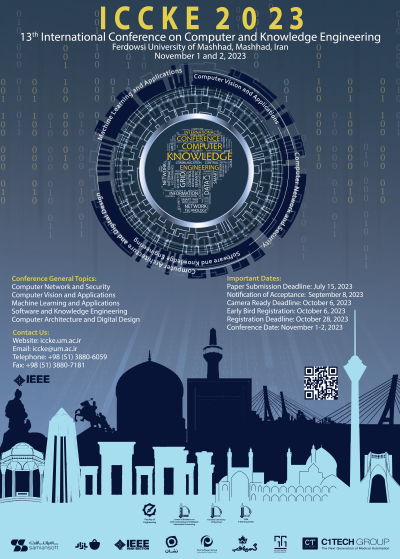0% Complete

Authors :
Keywords :
Abstract :
List of archived papers
Shima Esfandiari - Ashkan Sami
Arezou Safdari - Pedram Salehpour
Milad Sattari Maleki - Seyedeh Niusha Motevallian - Faezehsadat Hosseini - Mohammad Sabokrou - Hamidreza Soltanalizadeh Maleki
Majid Mohammadpour - Seyedakbar Mostafavi
Ervin Gubin Moung - Toh Sin Tong - Maisarah Mohd Sufian - Valentino Liaw - Ali Farzamnia - Farashazillah Yahya
Kamyar Nasiri - Kamaledin Ghiasi-Shirazi
Amir Mohammad Karimi Mamaghan - Amin Setayesh - Behnam Bahrak
Parisa Fard Moshiri - Mohammad Nabati - Reza Shahbazian - Seyed Ali Ghorashi
Mobin Vaziri - Hadi Jahanirad




